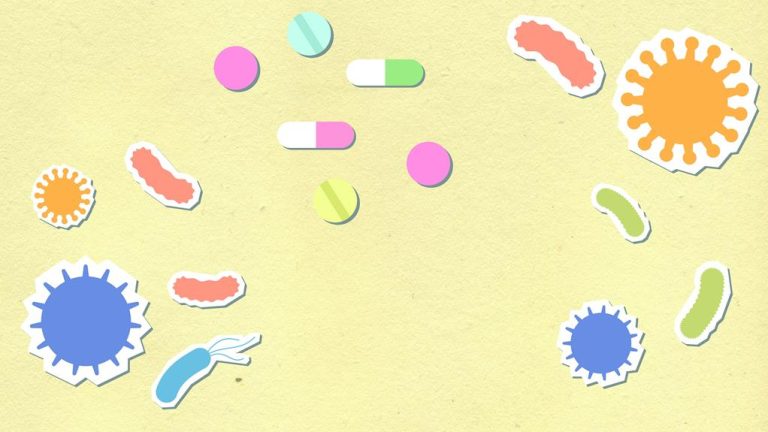Adhd Compulsive Lying in Adults
As someone with ADHD, I've experienced firsthand the challenges of maneuvering compulsive lying tendencies. Imagine feeling compelled to fabricate stories to cover up missed deadlines or forgetfulness, only to spiral into a web of deceit that strains relationships and erodes trust.
But why do adults with ADHD resort to compulsive lying, and how can this behavior be effectively addressed? Let's explore the intricate interplay between ADHD and compulsive lying, unpacking strategies and insights that could offer a path towards understanding and healing.
Key Takeaways
- Compulsive lying in ADHD adults impacts relationships, mental health, and reputation.
- Impulsive behavior and cognitive challenges contribute to lying tendencies.
- Lying serves as a coping mechanism to manage shame, guilt, and low self-esteem.
- Tailored strategies and support systems help address and manage compulsive lying in ADHD adults.
Impact of Compulsive Lying in ADHD Adults

Compulsive lying in adults with ADHD greatly impacts their relationships, mental well-being, and overall reputation. The impulsive nature often seen in individuals with ADHD can lead to compulsive lying behaviors, which may stem from forgetfulness and a fear of facing consequences. This pattern of constant dishonesty can exacerbate existing mental health conditions such as depression and anxiety in adults with ADHD, creating a cycle of emotional distress.
Regarding relationships, compulsive lying can strain trust between partners, friends, and colleagues. The erosion of trust due to ongoing dishonesty can damage these important connections and lead to feelings of betrayal and resentment. Additionally, the reputation of adults with ADHD who engage in compulsive lying may suffer, as small lies can snowball into significant issues that impact various aspects of their lives.
To address compulsive lying, individuals with ADHD must cultivate self-awareness to recognize their patterns of dishonesty, take accountability for their actions, and seek support from therapy or counseling. Building these skills is essential for breaking the cycle of compulsive lying and fostering healthier relationships based on trust and honesty.
Behavioral Patterns in Adults With ADHD

Adults with ADHD often exhibit distinct behavioral patterns that can impact various aspects of their daily lives. Impulsive behavior, such as lying, is a common manifestation of ADHD in adults. This impulsive lying can be linked to challenges like poor attention and hyperactivity that are characteristic of the condition.
Additionally, adults with ADHD may engage in compulsive lying as a result of low self-esteem, difficulty expressing their thoughts, forgetfulness, and feelings of shame associated with their ADHD diagnosis. The act of lying in this population can be driven by internal motivations and a desire to navigate social situations or avoid conflicts due to struggles in explaining their actions.
Compulsive liars with ADHD may find themselves creating believable lies, engaging in long-term deception, and persisting in lying even when telling the truth would be simpler. These behavioral patterns highlight the complex interplay between ADHD symptoms and lying tendencies in adults.
Factors Contributing to Lying in ADHD

Factors contributing to lying in ADHD can be multifaceted and interconnected, encompassing cognitive, emotional, and social aspects of individuals with the condition.
- Cognitive Challenges: Adults with ADHD may struggle with memory issues and difficulties in accurately expressing themselves, leading to unintentional misinformation and fabrications.
- Emotional Coping Mechanisms: The shame and guilt associated with ADHD-related challenges can drive individuals to resort to lying as a defense mechanism to protect themselves from perceived judgment or criticism.
- Self-Esteem and Social Dynamics: Low self-esteem in adults with ADHD may prompt lying behaviors to either enhance their self-image or avoid conflicts with others, as they aim to fit in and navigate social interactions.
These factors intertwine to create a complex landscape where lying becomes a coping strategy for managing the daily struggles and perceived inadequacies associated with ADHD. Understanding these underlying reasons is vital in developing effective strategies to address compulsive lying behaviors in adults with ADHD.
Strategies for Addressing Compulsive Lying

When addressing compulsive lying in individuals with ADHD, it's important to implement tailored strategies that target the root causes of the behavior. ADHD often contributes to impulsive lying tendencies due to the challenges in impulse control and attention regulation associated with the condition. To address this, individuals can benefit from setting practical and realistic expectations, minimizing distractions to enhance attention, and allowing time for thoughtful responses to reduce impulsive lies.
Additionally, individuals with ADHD can benefit from double-checking information for accuracy to combat compulsive lying habits and improve honesty levels. Understanding the link between ADHD symptoms and compulsive lying behaviors is essential in developing effective strategies to address this issue. By recognizing the unique challenges that individuals with ADHD face in managing their impulses and attention, we can tailor interventions to help them navigate situations that may trigger compulsive lying tendencies.
Little white lies can escalate among individuals with ADHD, making it essential to provide support and guidance to mitigate this behavior effectively and promote honesty in their interactions.
Support Systems for ADHD Adults

With a focus on aiding individuals with ADHD in managing their symptoms, exploring support systems tailored specifically for adults becomes paramount. When considering support systems for ADHD adults, several key options stand out:
- Therapy: Professional therapy can offer personalized strategies to address the unique challenges faced by adults with ADHD. Therapists provide guidance and tools to navigate daily life more effectively.
- Coaching: ADHD coaching focuses on practical strategies and goal-setting techniques to help adults with ADHD improve time management, organization, and overall productivity. Coaches offer support and accountability in implementing these strategies.
- Support Groups: Joining ADHD-specific support groups can provide a sense of community, understanding, and shared experiences. These groups offer a platform for individuals to connect, exchange tips, and learn from one another's journeys in managing ADHD symptoms.
These support systems play an important role in offering the understanding, guidance, and practical assistance necessary for ADHD adults to navigate their condition effectively and enhance their overall well-being.
Frequently Asked Questions
Can Compulsive Lying in Adults With ADHD Be a Coping Mechanism for Managing Their Symptoms?
Compulsive lying in adults can serve as a coping mechanism for managing various challenges. It impacts relationships, often rooted in underlying causes like cognitive distortions. Improving impulse control, emotional regulation, and communication skills can enhance self-awareness, trust-building, and behavior patterns.
How Can Family Members Differentiate Between a Lie Stemming From ADHD and Intentional Deceit in Their Loved One With the Condition?
Trust issues can arise due to a lack of understanding between intentional deceit and ADHD-related lying. Communication breakdown can be tackled by observing behavioral patterns, seeking support systems, engaging in cognitive therapy, enhancing impulse control, and adjusting family dynamics for improved emotional regulation and self-awareness. Boundary setting is key.
Are There Specific Types of Therapy or Counseling That Have Been Found to Be Particularly Effective in Addressing Compulsive Lying in Adults With Adhd?
In addressing compulsive lying in adults, cognitive behavioral therapy, dialectical counseling, and mindfulness-based treatments have shown effectiveness. Group sessions, interpersonal interventions, and behavioral strategies are also valuable. Psychoeducational approaches, solution-focused therapy, narrative techniques, and family therapy can be beneficial.
Are There Any Medications or Treatments That Can Help Reduce the Urge to Lie in Individuals With Adhd?
Medications can help manage symptoms, while behavioral therapy, cognitive techniques, and alternative treatments address underlying issues. Learning impulse control, joining support groups, practicing mindfulness, improving self-awareness, communication skills, and implementing accountability measures can aid in reducing lying urges.
Is Compulsive Lying in Adults With ADHD Linked to Other Co-Existing Mental Health Conditions or Behavioral Disorders?
Compulsive lying in adults with ADHD may be linked to co-existing mental health conditions or behavioral disorders. Understanding this connection can aid in developing effective strategies for anxiety management, impulse control, and improving communication skills.
Conclusion
In managing compulsive lying in adults with ADHD, it's essential to recognize the underlying factors contributing to this behavior and implement strategies for positive change.
Like a tangled web of deceit, unchecked lying can lead to a cycle of negative consequences. By seeking support, practicing mindfulness, and fostering open communication, individuals can break free from the grip of dishonesty and cultivate healthier relationships and self-esteem.
It's never too late to unravel the lies and embrace honesty.







